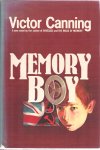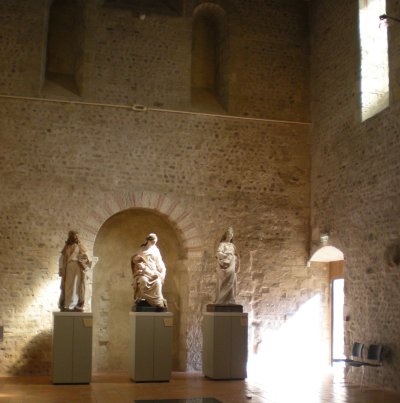
UK first edition

USA first edition
 UK first edition |
 USA first edition |
The BookThe Comte de Servais, whose own son has been betrayed working for the secret services, has compiled a list of traitors in the British and French governments. For some inadequately explained reason he will not write it down or speak it over the phone or into a recorder. Peter Courtney, a 14-year-old boy who lives near Paddington Station and has made many friends there, has an extaordinary gift of verbatim recall; he can repeat any text that is read to him once. He can even do it in French, though he speaks the language very badly. His widowed father, whose bookshop is not prospering, takes him around the social clubs of London to perform for money. Rundell, a secret service boss, sees one of these events and asks the Comte if he is prepared to read his list to the boy. That is agreed. Peter visits the Comte in Angers and hears his list. On the way home his father sees in the paper that the Comte was murdered just after they had left him. He realises that whatever the boy has memorised is important and dangerous. In fact an assassin is waiting to shoot the boy on their return, but Peter asks to be dropped off at Paddington Station, and his father returns to his house to discover his new wife in bed with another man. He dashes out of the house, picks up the boy and the two of them set off for the West Country, funded by £2000 in cash which he has just been paid for the boy's work. The rest of the book takes up a Canning theme familiar from Mr. Finchley, The Runaways and The Doomsday Carrier, namely pursuit of innocents across the English countryside. They start in lodgings, but hear that enquiries are being made. They move to a caravan and make the acquaintance of Lady Diana Stormont, the impoverished aristocrat who owns it. Meanwhile the sinister bird-watching assassin Albert Horsfell is systematically going through property rental listings and reporting to the traitorous Ted Tampion, Rundell's deputy, in London. When Lady Diana is finally told why Peter and his father are there, she is able to draw on her society connections to save them. |
Publishing HistoryPublished by Heinemann in 1981 at £6.95. The US edition by Morrow & Co came out in the same year under the title Memory Boy. It was read aloud on BBC Radio 4 in the Story Time slot in September 1982. The plot recycles an idea from Canning's 1964 television series Curtain of Fear in which a cabaret singer is hypnotised to provide complete verbatim recall of conversations she has overheard at the nightclub where she works. (This was also shown in Germany under the title Verräter in 1967.) This book asks the reader to swallow a rather implausible situation at the beginning and a huge coincidence at the end. In between Canning has written one of his best books. As in much of Canning's late work, the wildlife descriptions and the two love stories that develop, between Peter's father and Lady Diana and between Peter himself and Judy Preston, the gamekeeper's daughter, are as important as the suspense. But the suspense is strong. The village of Sleadon in which the second half of the book is set, supposed to lie between Tavistock and Launceston, is fictitious. The best real-life match would be Polson Bridge and Polson Wood, beside the River Tamar on the A388. It is an area Canning would have known well, having lived just 40 miles away in South Molton. |

|

|
|
On the way they stopped for a picnic lunch she had brought and ate it on the banks of a river near a place called Château Gontier. The river was called the Mayenne and ran all the way down to Angers and finally joined up with the Loire. In a way, he thought, it was like having a geography lesson—but far more fun. After lunch he wandered away up the river to find a place to do a jimmy-riddle. On the way he passed a man fishing and, suddenly daring because he really was enjoying himself, he said after a little thought, “Bonjour, monsieur. Avez-vous . . . uh … uh … caught quelquechose?” (p. 38) |
They spent two days in Angers and, since the hotel had no restaurant, they ate out, except for breakfast which they had in the room they shared. Those two days Peter often found boring although his father did his best to keep him amused. He took him to some of the show places of the city—the Grand Château de la Loire which was not far from their hotel, ... (p. 39) |

|

|
| ... and to the Roman arcades ... | ... and to the Cathedral. But his enthusiasm for such places was very moderate. (p. 40) |

|

|
|
The other thing—and this he liked more—was only a
stone’s throw from their hotel. This was the Gare Saint-Laud.
As a station it wasn’t a patch on Paddington, of course. But
it was a station and there was a recognizable atmosphere about it.
(p. 40)
|
He made brief friends with the lady who looked after the newspaper kiosk and an old man who was repainting some of the woodwork in the main hall. Both had some English and they reminded him vaguely of May and Blackie Timms. The trains were a bit different, but there was the same feeling about them and in him as they came and went. The old man told him that he had been to London once—to Twickenham to watch a rugby international between England and France and had had his wallet stolen. He had done a lot of miming before Peter had understood the words mon portefeuille, and grinning had said, “Aaaah … sacrés Anglais.” (p. 40) |